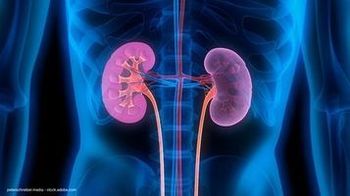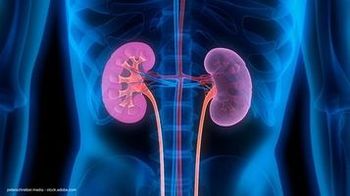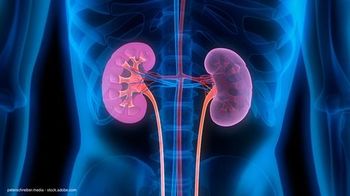
Bisphosphonate offers prostate Ca pain relief
A single dose of a bisphosphonate in prostate cancer patients with bone metastases is as effective for pain relief as single-dose radiotherapy, according to a study presented at the European Multidisciplinary Cancer Congress in Stockholm, Sweden.
A single dose of a bisphosphonate in prostate cancer patients with bone metastases is as effective for pain relief as single-dose radiotherapy, according to a study presented at the European Multidisciplinary Cancer Congress in Stockholm, Sweden.
Researchers led by Peter Hoskin, MD, PhD, of Mount Vernon Cancer Centre, Northwood, United Kingdom, and University College, London, randomized 470 patients with primary prostate cancer and painful bone metastases to receive either a single dose of radiation or a single intravenous infusion of the bisphosphonate ibandronate (IB [Boniva]). Patients reported their primary site of pain at entry into the trial, and then at 4, 8, 12, 26, and 52 weeks after treatment.
Those who had not responded to the first treatment at 4 weeks crossed over to the alternative therapy and received their second treatment no later than week eight. Pain levels were measured at 4 and 12 weeks by examining analgesic use via the World Health Organization pain ladder and the Mercadante method, which defines analgesic use in morphine equivalents.
"We found that using IB was as good as single-dose radiotherapy in controlling pain," Dr. Hoskin said. "Although there were more patients in the IB group with worse Mercadante scores at 4 weeks who needed re-treatment, at 6 and 12 months there was no long-term difference in pain relief between the two groups."
The median survival of the four groups was 11.8 months (radiotherapy only), 11.4 months (IB only), 12.7 months (radiotherapy then IB), and 16.8 months (IB then radiotherapy).
"We hope to analyze these survival differences further in the hope that it can give us further pointers as to how and whether we should use a combination of treatments," Dr. Hoskin said. "Currently, we are unsure about the optimal timing and scheduling of treatment for these patients."
The researchers intend to follow up their work with a study looking at biomarkers for bone resorption.
“If we can correlate these markers with response to both radiotherapy and IB, we will be able to see whether they can predict which patients would respond best to which treatment,” Dr. Hoskin said.
Roche provided funding for the study.
Newsletter
Stay current with the latest urology news and practice-changing insights — sign up now for the essential updates every urologist needs.





